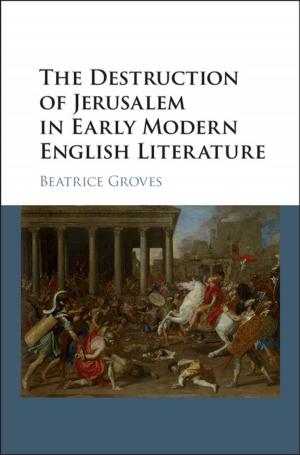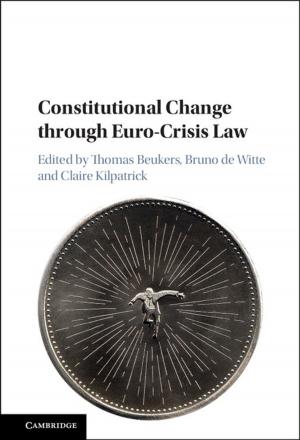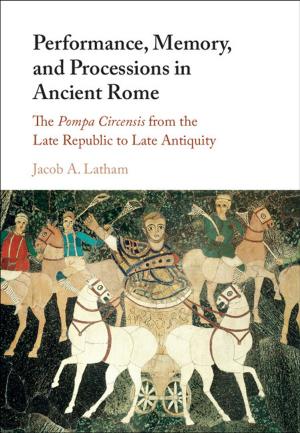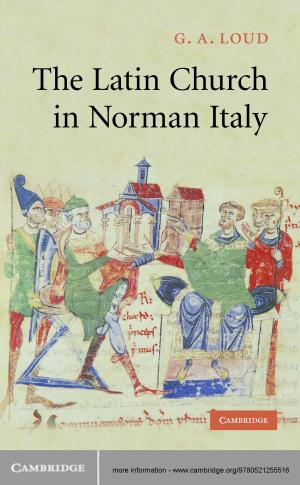Thucydides, Pericles, and the Idea of Athens in the Peloponnesian War
Nonfiction, History, Ancient History| Author: | Martha Taylor | ISBN: | 9780511700248 |
| Publisher: | Cambridge University Press | Publication: | October 26, 2009 |
| Imprint: | Cambridge University Press | Language: | English |
| Author: | Martha Taylor |
| ISBN: | 9780511700248 |
| Publisher: | Cambridge University Press |
| Publication: | October 26, 2009 |
| Imprint: | Cambridge University Press |
| Language: | English |
Thucydides, Pericles, and the Idea of Athens in the Peloponnesian War is the first comprehensive study of Thucydides' presentation of Pericles' radical redefinition of the city of Athens during the Peloponnesian War. Martha Taylor argues that Thucydides subtly critiques Pericles' vision of Athens as a city divorced from the territory of Attica and focused, instead, on the sea and the empire. Thucydides shows that Pericles' reconceputalization of the city led the Athenians both to Melos and to Sicily. Toward the end of his work, Thucydides demonstrates that flexible thinking about the city exacerbated the Athenians' civil war. Providing a thorough critique and analysis of Thucydides' neglected book 8, Taylor shows that Thucydides praises political compromise centered around the traditional city in Attica. In doing so, he implicitly censures both Pericles and the Athenian imperial project itself.
Thucydides, Pericles, and the Idea of Athens in the Peloponnesian War is the first comprehensive study of Thucydides' presentation of Pericles' radical redefinition of the city of Athens during the Peloponnesian War. Martha Taylor argues that Thucydides subtly critiques Pericles' vision of Athens as a city divorced from the territory of Attica and focused, instead, on the sea and the empire. Thucydides shows that Pericles' reconceputalization of the city led the Athenians both to Melos and to Sicily. Toward the end of his work, Thucydides demonstrates that flexible thinking about the city exacerbated the Athenians' civil war. Providing a thorough critique and analysis of Thucydides' neglected book 8, Taylor shows that Thucydides praises political compromise centered around the traditional city in Attica. In doing so, he implicitly censures both Pericles and the Athenian imperial project itself.















